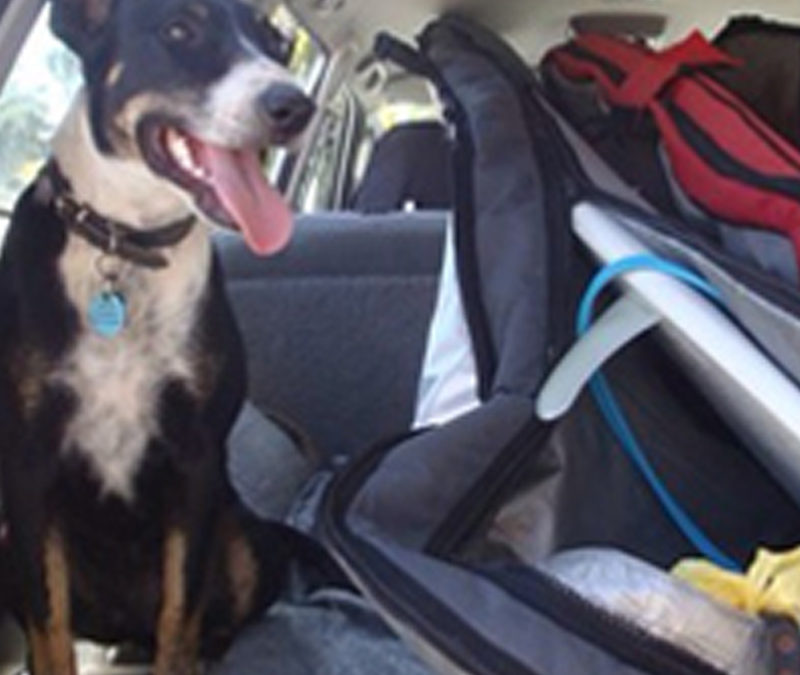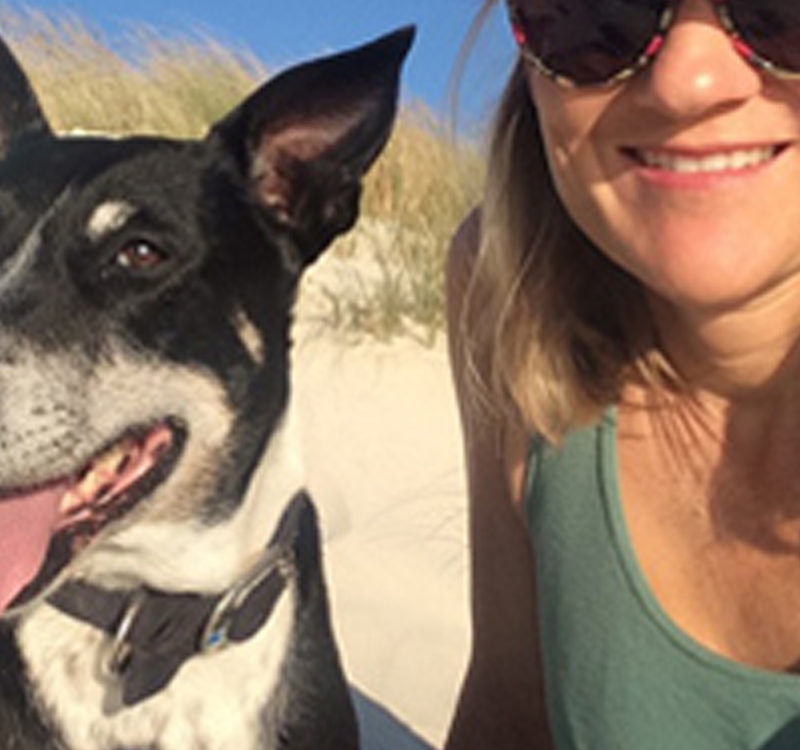Furry friends are an important addition to any pet lover’s holiday plans, especially when they’re considered part of the family.
Mention ‘road trip’ to a tail-wagger and they’ll get more excited than a champagne bottle ready to pop. But if you’re planning to bring your pooch (or other four-legged friends) on the trip, there’s a lot to consider for a safe and enjoyable journey.
From appropriate pet-friendly accommodation to critical safety tips, travelling with pets can be a challenge. However, going on a trip without them just isn’t the same for many people. See here for the ultimate guide to travelling with dogs in Australia.
If you want to make your pet part of your travel plans, here’s what you need to consider.
NOTE: Please be aware that there is a risk of1080 poison in Western Australia. The bait is used to contain pest animals such as foxes and rabbits. While this bait is predominantly used in national parks, reserves and state forests which have warning sings other areas are also at risk as birds have been known to spread the poison. Dogs are highly sensitive to 1080. This is also one of the main reasons why dogs are not allowed in national parks.
Book Pet-Friendly Accommodation Early
Although WA is becoming more accommodating for pets and travel, most pet-friendly places will book out early in peak season.
Many will also come with restrictions, such as size limitations or designated pet-only areas. Others may be dogs only, limited to certain breeds and number of pets or require proof of vaccinations. Check options on your travel route and book well in advance to avoid being turned down or unprepared. Sites such as Holidaying with Dogs will also help to narrow down your choices and read reviews.
Give Your Pet a Trial Run
If your pet is new to the family or you haven’t travelled with him before, always plan a trial run first.
Pets can get car sick like humans. A new car or different circumstances may also make them uncomfortable. For example, just because your furry friend is usually happy sitting in the front seat, doesn’t mean they’re trained or comfortable to stay in the back.
Choose a location close to home, such as a local park, bushwalking trail or beach, and test your pet in the car. You can bring treats, their favourite toy or bedding if it helps them to feel better about the process. Some pets will take to the car naturally first go. However many pets, especially pups, develop a fear of it or take time with toilet training.
Update ID Tags and Contact Details
Your four-legged friend will be exploring new surroundings and more likely to get lost than at home. Just in case, ensure ID tags are up-to-date, with their name and your contact number.
If the tag comes off, vets can scan your pet to contact you through the microchip details. Call your vet before the road trip to check they have your correct details.
Pack a Pet Bag
Humans and pets have very similar needs for a safe and comfortable journey.
You’ll pack a bag (or two) of a few essentials you need for the road trip. And your pet is no different. Pack a pet bag for your pooch, including items such as:
- Bedding: A transportable pet bed or their favourite blanket to sleep on, so they feel more at home
- Food/water: Pack their own food and water bowls with a good supply of pet food. It’s best to feed them what they’re used to eating at home, to reduce ‘change stress’. Include treats as well and bring plenty of water, as taps may not always be easy to find
- Favourite toy: Needed for help combat boredom and put your pet at ease
- Documents: Some pet-friendly accommodation will need copies of your pet’s vaccinations, bring along or keep a copy on your phone
- Doggy first aid: You wouldn’t forget your travel first aid kit, so bring one for pooch too. Include your vet’s contact details and a list of pet-safety essentials here
- Clothing: If you’re going somewhere that’s cold (even at night), bring a doggy-jumper to keep them snug, collar and lead
- Waste cleanup: Disposable bags and/or litter tray
Safety First
As another safety precaution, in addition to your doggy first aid, ensure your pets have been vet checked before the trip. This is critical if you’re going for an extended holiday.
Your pet should also be wormed and vaccinated, as the risk of them catching a disease or worms is increased. Some holiday parks will require to see the papers as proof as well.
Other essentials, such as water safety and never leaving your pet unattended in the car, are also top priority.
Driving with Pets – The Law
Did you know it’s illegal to drive in Australia with your pet on your lap? It can also be incredibly dangerous.
To safely drive with pets, you must have the right restraints or pet carrier in place. Pet restraints benefit you and your pet by minimising distractions and providing collision and injury protection. The safest restraints are dog harnesses, transport crates and cargo barriers, which are ideal for 4WDs.
The laws and consequences differ between states, so check what applies to you. In most cases, you’ll lose a demerit point, pay a fine and risk jail time if RSPCA get involved should any pet get injured because they weren’t strained.
Although not compulsory, it can be a smart idea to add roadside accidents/pet injuries to your insurance policy to keep your furry-friends protected too.
Remember, not all Pets Enjoy Travelling
Unfortunately, not all pets will enjoy travelling. Some holidays may not be practical to bring your pet on either.
If this is the case – don’t force them to travel. A local vet can provide boarding options or recommend a house and pet sitter to care for your pet in your absence. Sites like Mad Paws also offer pet sitters, with insurance and police clearances. This is usually better for pets who will naturally feel safer in their own environment. It also works out more cost-effective than boarding fees.
If you’re lucky to bring your mate along for the ride, dogs can make great travel companions. They don’t ask ‘are we there yet’ or care if it rains, they’re just up for any adventure with their favourite human – you.
Author Bio:
This article was written by Jayde Ferguson, a local content creator in the travel, business and music industries. Catch Jayde on LinkedIn.
Other dog-friendly articles on West Australian Explorer:
The dog’s guide to Margaret River – where to camp and drink wine with your dog
The dog’s guide to going north – pet-friendly campsites from Perth to Exmouth






1 Comment
Love all these tips! ?